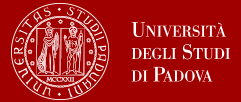
Women, knowledge, and academic institutions: Elena Cornaro at the University of Padua
Padua holds a special place in the history of the relationship between women and scientific institutions. In 1678, while in the rest of Italy and in Europe, universities continued to be strictly male-only bodies, a young noblewoman from Venice, Elena Lucrezia CornaroPiscopia, was admitted to Padua’s academic community and granted a doctoral degree in philosophy.
Today Elena Cornaro is celebrated as the first woman in modern history to receive a university degree, as an extraordinary example of intellectual power, and an early symbol of social recognition of a woman’s capacity to think and to know, in disciplines traditionally precluded to the female sex, such as theology, philosophy, astronomy and mathematics. Elena will be an icon of the University of Padua’s commitment to gender equality in the 2022 anniversary celebrations: our 9th century will be a great time for women in science.
‘ElenaCornaro’ University Centre for gender knowledges, cultures and policies
The Centre brings together researches, teachers and students from the University of Padua’s 32 departments. It collects the legacy and history of research groups and centresthat over time have worked for equal opportunities, gender equality and gender research in our institution.
The ‘Elena Cornaro’ Centre is:
- a place of research, planning and innovation
- a place of learning
- a place of collaboration between researchers and teachers dealing with gender issues in all areas of knowledge or working in a gender perspective
- a place for the collection of data on equal opportunities and gender equality in the university
- a meeting place with civil society
- a place of intersection with national and international networks
The Centre aims to
- develop an intersectional and integrated methodological scientific approach across political-social and humanistic studies, natural sciences, technology, medicine;
- transfer research results to innovative teaching, to engage students on issues of equality and difference;
- develop "gender innovations", ieresearch and innovative research products which take into accountthe sex / gender variable;
…aims of the Centre
- disseminate a greater and more informed awareness of gender issues in the academic community;
- promote actions for equal opportunities in the University andthe region;
- establish a permanent Observatory on gender balance and gender mainstreaming,publishing periodic analyses, indicators and data;
- strengthen and develop collaborations with other research centresand with international research and advocacy initiatives for the promotion of gender equality.






